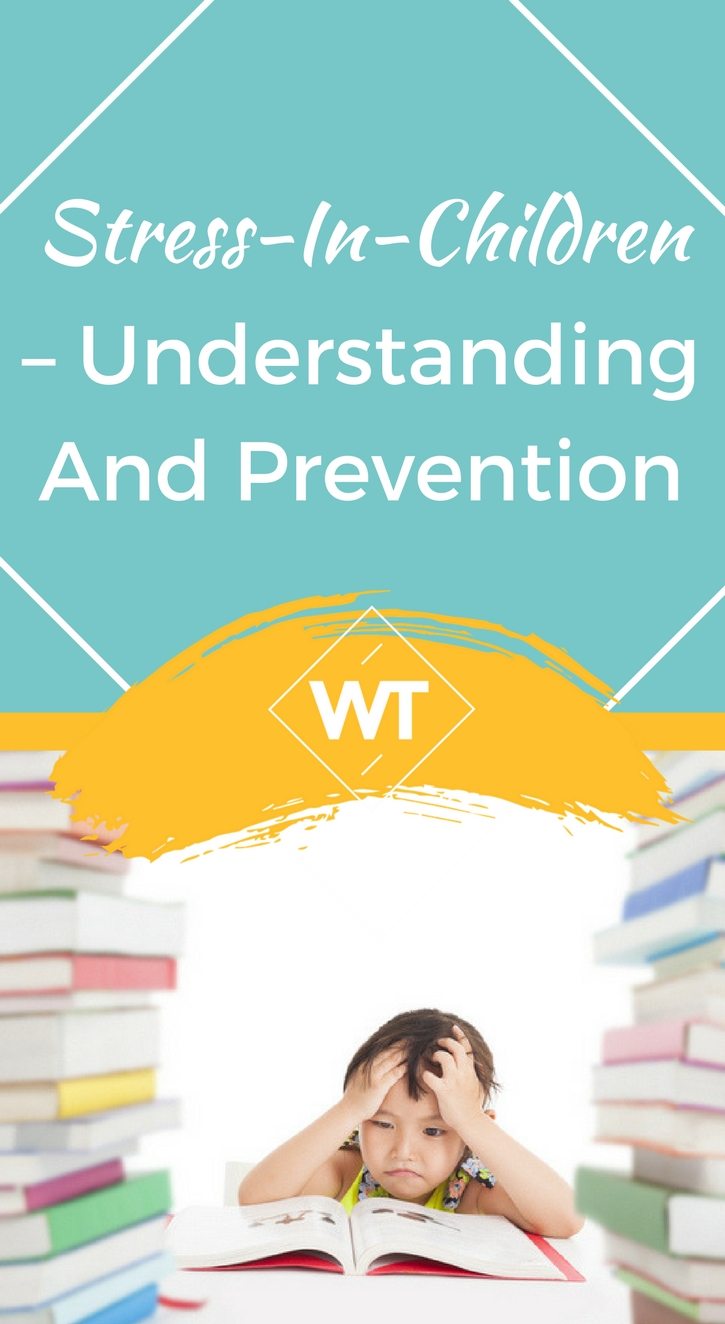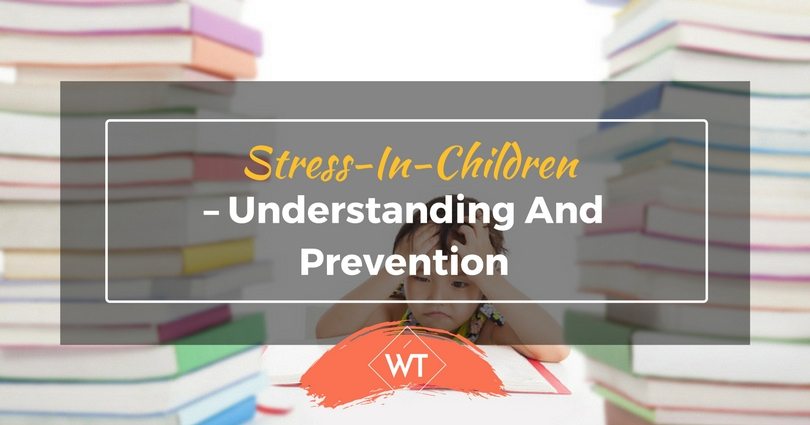Stress in Children – Understanding and Prevention

Childhood today fails to be a carefree and happy state. Parental and peer pressures are introducing dimensions to life that are just not essential. It seems to be the struggle to “match x, y and z” and to turn every child into a successful billionaire. “Is this what life is about” is a question that comes to my mind. Stress in children is a common phenomenon nowadays
All around me I see five- and six-year-olds running from school to classes, to tutors, and more. It snips at the bud of the freedom of mind and body—what seems to be happening is the creation of robots that dance, play sports, quiz, excel at school and play.
Contrary to belief, stress in children is common and they often succumb to stress leading to suicides and emotional breakdowns. Life should be a pleasurable experience and not one where a child is constantly struggling to climb up to the next rung of parental expectation.
Set ambition aside
Parents must first understand their child and love the child enough to not be ambitious on behalf of the child. Every child must experience childhood to the fullest.
A cousin of mine was a planner from the time her kids were born. She tried to live her ambitions through her children and tried to ensure that both the son and daughter excelled and achieved high standards.
While the son coped, her daughter struggled to “keep up.” The child was very creative and a dreamer but the chase for a “professional qualification” sent her into a spin—she became rebellious and depressed and very, very sad.
Parents need to help children lead holistic lives but allow freedom of choice and let each child find their own level of comfort.
Every child is not born to be a sports star or leader—some may want to be poets, gardeners, artists, or travelers. The key to successful parenting lies in setting aside your own ambitions, not giving into popular trends and developing a “sixth sense” where your child is concerned.
Recognize stress in children
Help the child find their own level at school and extracurricular activities. Understand the child and learn to recognize signs of stress in children: an unhappy face, withdrawing into a shell, unexplained feverishness, a tendency to hide or stick to you, reluctance to go to school, anything that is out of the ordinary.
- Some children overeat, have nightmares, bed wet, and refuse to look you in the eye. Be kind and don’t bully the child into “telling you what the matter is.” Let the child know you care and will help.
- Often a child may grasp things like Math slower than his or her classmates. My son learned to tackle addition and fractions almost two years later than his classmates. At that point I was quite firm that doing 100 sums every day was not the answer—I just let him cruise along till he could figure out Math for himself.
- Similarly many children are afraid of the dark, or shadows, and get stressed if they are alone at home. Help them by understanding what is bothering them, ensuring that they know you are there to protect them and that you will stay at home with them if they need you.
- If a child is at the bottom of a class and afraid of failing explain that its okay and that life is not just about scoring well in exams. Work with the teachers at school and get to the root of the problem—many children do not do well with rote learning and overcrowded classrooms or in the company of bullies.
Modern Parenting
Be modern and learn all about child development and modern parenting. The internet has several resources that can help you keep abreast with fears/stress and how to deal with stress in children.
It’s mostly about trust and bonding—a strong child-parent bonding will help a child be confident, speak about problems, learn to cope and develop problem-solving skills and social skills. Try your best not to react to situations with tears or anger. It’s not about you as a parent coping with disappointments but about the welfare of the child.
Be calm and think things through—hold out your hand to the child and let the child know you are there to help and that all their problems can be tackled. Use books, story time, and games to help children express their thoughts and feelings and find ways to solve problems. There are no dead-ends in life. From a young age a child must know that there are no dead-ends in life and that there are many paths to tread.
Nurture positivity and teach children relaxation techniques and how to alleviate stress through music, dance, sport, prayer, and so on.
Conclusion – Stress in Children
Treat the child as a child and do not expect them to cope with life like adults. Praise, truth, and love will help a child live life to the fullest and excel in the path they choose to tread. Work towards reduced stress in children. If you have difficulty communicating with your child, then read some useful tips on – How to talk to kids









Leave a Reply